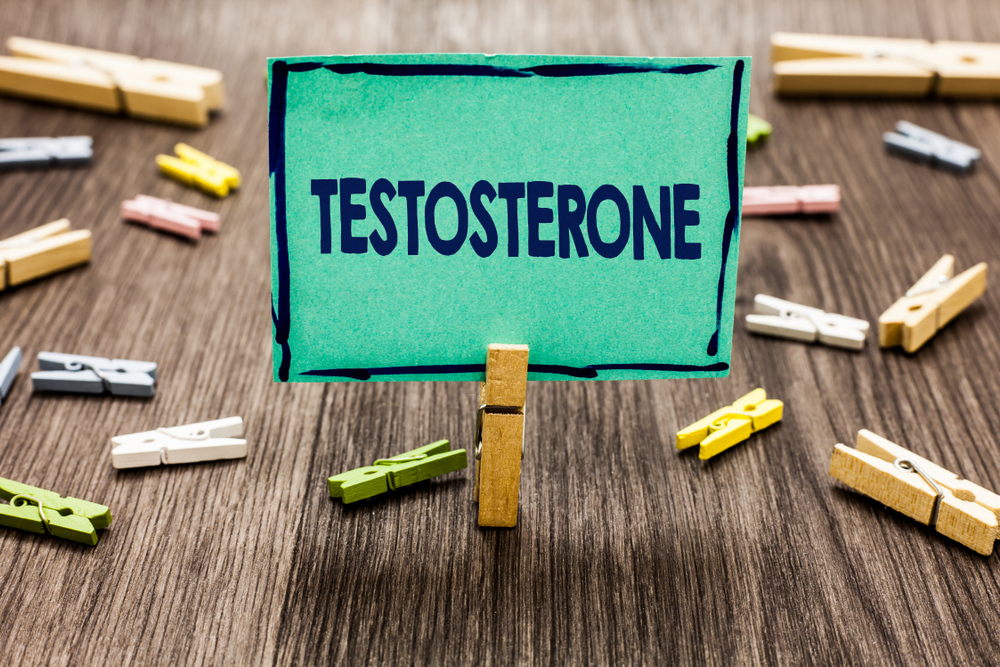Hormones accomplish important functions in the body. They are a different type of chemical messengers, and most of them are produced in glands, endocrine in this case, and they are also regulated by the pituitary. Although it has been proven that different types of hormones are produced in different parts of the bodies, like testosterone, which is developed in the testes in men and the ovaries in women.
Their function is to regulate different processes in our bodies, like metabolism, growth and development, mood, appetite, sexual functions, and sleep cycle, among others.
Testosterone is a steroid hormone, meaning that it’s a steroid that has the properties to act as a hormone and its main function is to regulate the physical features in men, like body mass, muscle mass, regulation of body hair (including facial and pubic hair), voice tone, bone development and more.
The production of this hormone is made in the testes by the Leydig cells, and the production process reaches its peak in the 20s, and start decreasing naturally in the late 30s-40s. Normal testosterone levels range from 270 to 1070 nanograms per deciLiter (ng/dL) in adults and they descend 1% each year in men in their forties, although sometimes men start experiencing symptoms of low T-levels due to a variety of causes.
A blood test is the most common and the best way to have a measure of your T-level.
What can cause low testosterone levels?
There is an array of issues that can cause low T-levels, like hypogonadism and genetic issues –syndromes like Klinefelter, Kallman, Prader-Willi, and hemochromatosis. And like mentioned before, aging also lowers the testosterone production.

Physical causes are also attached to the deficiency of testosterone, like testicular damage caused by trauma or other external factors, like a complication with mumps and even alcoholism.
Tumors in your prostate, exposure to radiation, hypothalamic or pituitary disease are also linked to this issue.
What are the symptoms of low T-levels?
Low testosterone levels can be developed in uterus, childhood, and adulthood.
When it comes to the fetus, the deficiency of androgen can happen in the first 12 weeks of gestation. It can be seen as ambiguous genitalia, and the testes won’t descend in the months ahead.
When they grow, kids that had suffered from low levels when they were fetus may have an acute voice, low muscle index, a poor genitalia development, and not much body hair, among others.
Sometimes the patient will need surgery and hormone replacement therapy.
Sometimes, kids start to have symptoms in their development stage, and testosterone replacement therapy is prescribed, just like in a grown man. In these two stages, their fertility can be compromised if they don’t treat it accordingly. And not just that, they may also suffer from low energy, depression, poor sexual drive, their facial and body hair won’t grow as it should, and their muscles and body mass will be low.
Genetic Signs
Some men are born with syndromes or conditions that cause low testosterone levels.
- Hemochromatosis
Hemochromatosis is a rare hereditary condition that occurs because men have high levels of iron in their blood; however, it can be controlled when diagnosed properly. It can be fatal if not treated.
Some of the symptoms are irregular heartbeats, memory loss, low energy, abdominal pain and loss of sex drive.
Diabetes, arrhythmia, skin darkening and arthritis are some of the consequences of untreated hemochromatosis.
- Klinefelter Syndrome
Klinefelter syndrome is a non-hereditary condition that happens when men have an extra X copy in their sex chromosome. Besides sexual problems, those who suffer from this disease will experience poor intellectual development. Unfortunately, it can first be diagnosed in puberty or adulthood.
People with this affliction will have small testes, and that will lead to a small production of testosterone. It has no cure, but it can be treated, like any other issue related to low testosterone levels.
- Kallmann Syndrome

Kallmann syndrome is noted because puberty will likely not occur or it will be delayed in men that suffer from it, so they will have a decreased amount of testosterone. Another characteristic of this condition is having absentia or diminished sense of smell. Hearing loss and non-development of one kidney are also among the symptoms of this condition.
- Prader-Willi Syndrome
Prader-Willi syndrome affects some parts of the body. They have low muscle tone, delayed development, and poor growth. They will also suffer from intellectual impairment, diabetes, and obesity in some cases.
What can you do if you have low testosterone levels?
Some men use supplements to boost their T-levels, like Male UltrCore, a product in the shape of pill that mixes an array of natural ingredients, like ashwagandha, fenugreek, longjack and a complex called zinc-magnesium aspartate.
While it doesn’t contain testosterone per se, those ingredients have been proven to boost testosterone levels because of their chemical compounds.
Other men, with serious testosterone issues, are prescribed by their doctors to get injections, patches or gels to help them improve their levels, and always under medical observation because abuse of these substances can lead to risks in your health and even death in the worst scenario.
Heart problems, issues with mental health, liver and/or kidney complications are some of the most common consequences of abusing these boosters.
These are the most common methods to boost testosterone, although there are food that can help you improve your T-levels, like bananas, honey, cocoa, tuna, oyster (and seafood in general) and egg yolks. Vitamins and minerals are also known to give you a hand when it comes to improving your testosterone levels.







